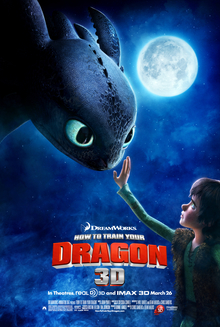Sometimes a movie can capture a profound thought in a simple line of dialogue. With a single, succinct line, the film How to Train Your Dragon (2010) provided good insight into the advancement of science.
The movie showed the young hero, Hiccup, learning from his father, village authorities, and the “Book of Dragons” that these beasts were extremely dangerous and must be killed on sight.
When he observed actual dragon behavior close-up, however, he discovered they were not as he’d been told, nor as he’d read. Surprised at this, he said, “Everything we know about you guys is wrong.”
This is a great expression of the way science advances in the real world. At one point, authorities agreed the Earth was flat, the Sun revolved around the Earth, species were unchanging, continents did not move, dinosaurs were reptiles, etc.
In each case, one open-minded person examined actual evidence and discovered previously accepted facts to be in error. In each case, the astonished person might well have uttered a statement similar to Hiccup’s. “Everything we’ve known about this is wrong.”
After that, there ensues a long struggle by that brave, lone person against established authority, and eventual acceptance by scientists of the new understanding.
Since these dramatic moments of dogma-toppling discovery occur in real life, they’re well suited to fiction, as in the dragon-training movie. The common elements of the everything-we-know-is-wrong story include:
- A widely-accepted model or theory of how things are, codified by respected authority and regarded as true beyond question.
- A hero character, who, by intent or accident, discovers that reality does not correspond to the standard model or theory. The hero is usually puzzled and surprised at the moment of discovery.
- The struggle by the hero to convince others of the truth of the discovery through practical demonstration and empirical evidence. The hero becomes frustrated that people would rather believe a book or authorities than their own senses.
- The escalation of that struggle until the hero must confront the authorities who are invested in the status quo. This is a second moment of high drama as the hero demonstrates bravery in speaking truth to power.
- Eventual wearing down of the established order until authorities at last accept the new model as true.
We like to think of Science and scientists as being open to new discoveries, as inviting the advancement of new theories, so long as they’re backed up by evidence. In reality, scientists can get entrenched and stolid, just like any other authorities.
Of course, not everyone’s model-busting theory is true. Sometimes a crackpot idea is just a crackpot idea, and there are plenty of those.
Still, what legitimate paradigm-destroying discoveries await us? What remaining falsehoods do we all accept as true? How open and accepting will you be when someone comes to you with proof that everything you know about something is wrong?
Here’s a more intriguing question: what if you’re the one who makes the next such discovery? Are you bold enough to advance your theory to a skeptical world? Are you brave enough to defy well-established authority?
Whether it’s you or someone else who comes up with the next world-shaking discovery that proved everything we know is wrong, I’ll bet when it occurs, you’ll think of Hiccup, and you may also think of—
Poseidon’s Scribe

